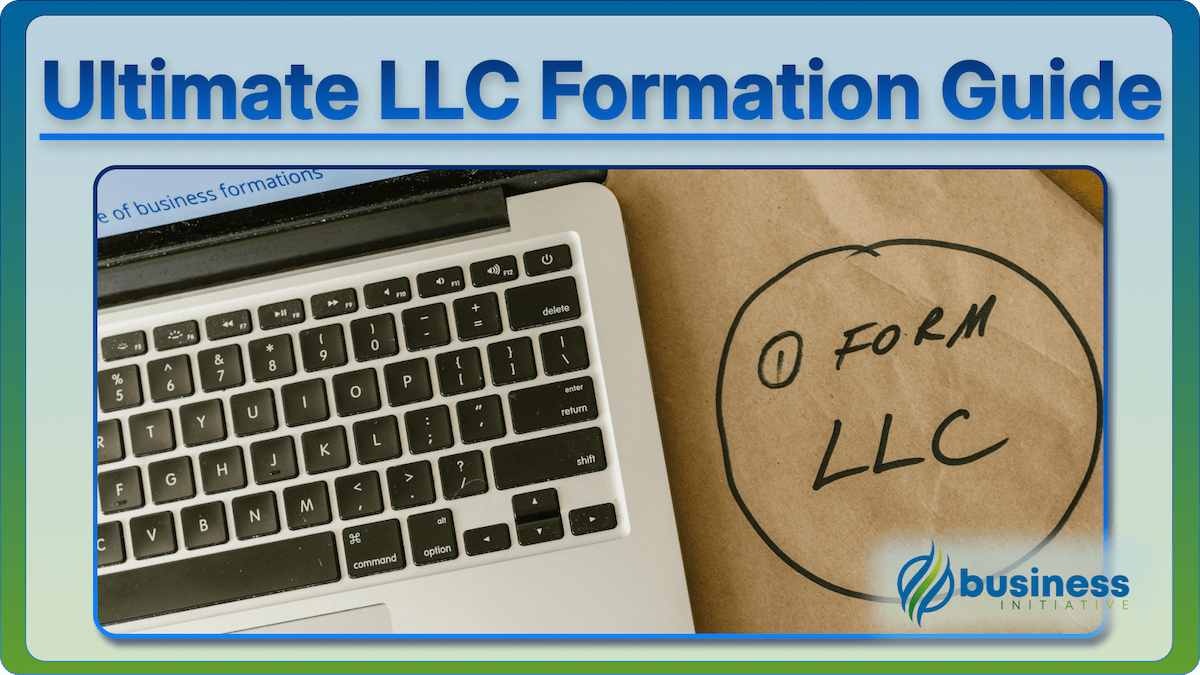You form your business.
Your address appears in public records. Data brokers scrape it. Your information spreads.
Data brokers sell your information.
Your address. Your phone number. Your business details. All available to anyone who pays.
You can limit the spread.
Privacy hygiene. Data broker removal. Ongoing protection. Your privacy strategy.
Read this. Understand the spread. Protect yourself.
 Key Takeaways
Key Takeaways
- Data brokers scrape public records and sell your business information—once your address is in public records, it can spread to dozens of data broker sites
- Using registered agent service limits exposure—your home address never appears in public records, so data brokers can't scrape it
- You can request removal from data broker sites—many sites offer opt-out processes, but it's time-consuming and requires ongoing maintenance
- Privacy hygiene is ongoing—new data broker sites appear regularly, and public records are constantly scraped, so protection requires regular monitoring
- The best protection is prevention—using registered agent service from day one prevents your home address from appearing in public records in the first place
 Table of Contents
Table of Contents

What Are Data Brokers?
Data brokers collect and sell your information.
What they do:
- Scrape public records
- Collect business information
- Sell data to anyone who pays
- Build profiles on businesses
Who uses them:
- Marketers
- Competitors
- Scammers
- Researchers
Why it matters: Your information is available to anyone who pays.
How Information Spreads
Your information spreads quickly:
Public Records
What happens:
- State business records are public
- Data brokers scrape these records
- Your address gets collected
- Information spreads to multiple sites
Why it matters: Public records are the source of data broker information.
Online Directories
What happens:
- Business directories list your information
- Data brokers scrape directories
- Your information gets collected
- More sites get your data
Why it matters: Online directories amplify the spread.
Data Broker Networks
What happens:
- Data brokers share information
- Your data appears on multiple sites
- Removal from one doesn’t remove from all
- New sites appear regularly
Why it matters: Data broker networks make removal difficult.
Pro tip: Once your information is in public records, it spreads quickly. Prevention is better than removal. See our privacy protection guide for prevention strategies.

What Gets Exposed
Data brokers collect and sell:
Business Address
What gets exposed:
- Registered agent address (if you use home address)
- Business mailing address
- Physical location
Why it matters: Your address is valuable to data brokers.
Contact Information
What gets exposed:
- Phone numbers
- Email addresses
- Business names
- Owner names
Why it matters: Contact information is sold to marketers and scammers.
Business Details
What gets exposed:
- Entity type
- Formation date
- State of formation
- Business status
Why it matters: Business details help competitors research you.
Pro tip: Using registered agent service protects your home address. Business information may still appear, but your personal address stays private.
Privacy Hygiene Basics
Follow these privacy hygiene practices:
Use Registered Agent Service
What to do:
- Use professional registered agent service
- Never use home address in public records
- Keep home address completely private
Why it matters: This prevents your home address from appearing in public records.
Limit Public Information
What to do:
- Use business address for public records
- Limit personal information in filings
- Review all public filings before submitting
Why it matters: Less public information means less data broker exposure.
Monitor Public Records
What to do:
- Check state business records periodically
- Verify registered agent address is used
- Ensure home address is not exposed
Why it matters: Monitoring catches exposure early.
Use Privacy Settings
What to do:
- Use privacy settings on business directories
- Opt out of data sharing when possible
- Limit information in online profiles
Why it matters: Privacy settings reduce exposure.
Pro tip: Privacy hygiene is ongoing. Start with registered agent service, then maintain good practices. See our registered agent guide for service options.

Data Broker Removal
You can request removal from data broker sites:
Major Data Broker Sites
What to do:
- Identify major data broker sites
- Find opt-out pages
- Submit removal requests
- Follow up if needed
Why it matters: Removal from major sites reduces exposure.
Removal Process
What to do:
- Visit each site’s opt-out page
- Submit required information
- Verify removal
- Document the process
Why it matters: Removal requires time and effort.
Challenges
What to expect:
- Each site has different process
- Removal takes time
- New sites appear regularly
- Information may reappear
Why it matters: Removal is ongoing, not one-time.
Pro tip: Removal is time-consuming and requires ongoing maintenance. Prevention through registered agent service is more effective.
Ongoing Protection
Maintain privacy over time:
Regular Monitoring
What to do:
- Check public records quarterly
- Search for your business online
- Monitor data broker sites
- Check for new exposure
Why it matters: Monitoring catches new exposure early.
Address Updates
What to do:
- Update registered agent if you move
- Keep home address private
- Notify state of registered agent changes
- Update business addresses
Why it matters: Address updates must maintain privacy.
New Filings
What to do:
- Use registered agent address in all filings
- Never use home address
- Review all new filings
- Check for privacy exposure
Why it matters: New filings must maintain privacy.
Privacy Maintenance
What to do:
- Review privacy practices regularly
- Update privacy settings
- Remove from data broker sites as needed
- Stay informed about privacy threats
Why it matters: Privacy requires ongoing maintenance.
Pro tip: Privacy is ongoing. Regular monitoring and maintenance are essential.
Your Next Steps
Understand data brokers. Practice privacy hygiene. Protect yourself.
This Week:
- Review this guide
- Check if your address is in public records
- Search for your business on data broker sites
- Start privacy hygiene practices
This Month:
- Get registered agent service if needed
- Request removal from major data broker sites
- Set up monitoring system
- Review privacy practices
Going Forward:
- Monitor public records regularly
- Maintain privacy hygiene
- Remove from data broker sites as needed
- Stay informed about privacy threats
Need help? Check out our registered agent guide for service options, our privacy protection guide for more privacy tips, and our privacy-first formation guide for structuring your filings.
Stay informed about business strategies and tools by following us on X (Twitter) and signing up for The Initiative Newsletter.
FAQs - Frequently Asked Questions About Staying Off Data Broker Lists: Privacy Hygiene for Small Business Owners

How do data brokers get my business information in the first place?
Data brokers scrape public records like state business filings and online directories, then sell your address, phone number, owner name, and business details to anyone who pays.
Learn More...
When you file formation documents with the state, that information becomes part of the public record. Data brokers use automated tools to scrape these records, collecting your registered agent address, business name, owner names, entity type, and formation date.
Online business directories amplify the spread by listing your information where more data brokers can find it. Data broker networks share information between sites, so once your data appears on one site, it quickly propagates to dozens more.
How does using a registered agent service protect my home address from data brokers?
A registered agent service provides a business address for your public filings, so your home address never appears in state records that data brokers scrape.
Learn More...
When you use a professional registered agent, their address appears on your formation documents instead of your home address. Since data brokers scrape state business records, they collect the registered agent's address rather than yours.
This is the most effective privacy strategy because it's preventive. Once your home address appears in public records, removing it is extremely difficult and time-consuming. Using a registered agent from day one prevents the exposure from ever happening.
Can I remove my information from data broker sites after it's already been published?
Yes, most data broker sites have opt-out processes, but removal is time-consuming, requires ongoing maintenance, and your information may reappear on new sites.
Learn More...
Each data broker site has its own opt-out page and removal process. You'll need to visit each site individually, submit required information, and follow up to verify removal. This can take significant time when your data appears on dozens of sites.
The challenge is that removal is not permanent. New data broker sites appear regularly, existing sites may re-scrape public records, and data broker networks share information. You'll need to repeat the removal process periodically, making prevention through registered agent service far more effective than after-the-fact removal.
What specific information do data brokers typically expose about small business owners?
Data brokers expose your business address (including home address if used), phone numbers, email addresses, owner names, entity type, formation date, and state of formation.
Learn More...
Business address exposure is the most concerning for privacy, especially if you used your home address as your registered agent address. Phone numbers and email addresses get sold to marketers and scammers, leading to unwanted solicitations.
Business details like entity type, formation date, and business status help competitors research your business. Owner names connected to business addresses create a personal privacy risk. All of this information is available to anyone willing to pay a data broker, which can include scammers, identity thieves, and aggressive marketers.
What does an ongoing privacy hygiene routine look like for a small business owner?
Check public records quarterly, search for your business on data broker sites, maintain registered agent service, review privacy settings, and request removal from new data broker sites as needed.
Learn More...
Start with quarterly monitoring: check state business records to verify your registered agent address is being used, search your business name on major data broker sites, and look for any new exposure.
Maintain your registered agent service without interruption and use the registered agent's address on all new filings. Review privacy settings on business directories and opt out of data sharing where possible. When you discover your information on new data broker sites, submit removal requests promptly. Keep a log of your removal requests and check back to verify they were processed.
Is it too late to protect my privacy if I already used my home address on business filings?
It's harder but not too late. Switch to a registered agent service for future filings, update your existing filings to use the new address, and begin the data broker removal process.
Learn More...
First, get a registered agent service so all future filings use their address. Then update your existing state filings to replace your home address with the registered agent's address. File a change of registered agent form with your state.
Next, begin the data broker removal process by identifying sites that have your home address and submitting opt-out requests. This is labor-intensive but reduces your exposure over time. Note that complete removal is difficult because cached copies and secondary sites may retain your old information, which is why prevention from day one is always the better strategy.
Sources & Additional Information
This guide provides general information about data broker privacy. Your specific situation may require different considerations.
For registered agent services, see our Registered Agent Guide.
For privacy protection, see our Privacy Protection Guide.
For privacy-first formation, see our Privacy-First Formation Guide.
Consult with professionals for advice specific to your situation.


